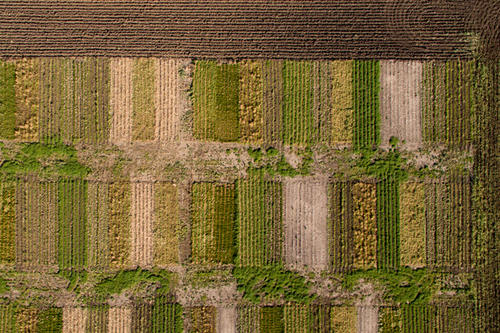
In an increasingly crowded and hungry world, a range of new food production technologies are emerging in an effort to keep up. New gene editing approaches now let scientists hack into genomes to alter foods’ characteristics – increasing yields, lengthening shelf-life, or improving disease resistance.
A recent study led by University of Minnesota researchers from the College of Food, Agricultural and Natural Resources Sciences (CFANS) provides the most concrete proposal to date for an open, inclusive process of considering whether, when, and how gene-editing biotechnologies could be used and developed, in a way that is broadly acceptable to society.
“Changes that took decades or centuries through selective breeding, can now be made in a matter of months – a blessing or a curse depending on your perspective. In fact, the fervor behind these positions has stagnated policy action and created a ‘powder keg’ environment that blocks the careful thinking needed to find a way to meet society’s tremendous food challenges,” says Professor of Agronomy and Plant Genetics Professor Nicholas Jordan, lead author of the study recently published in EMBO Reports.
“Figuring out how to govern the emerging rules of this new game is critical to farmers, scientists, entrepreneurs and civil society organizations seeking to navigate the benefits and risks of advances in gene editing.”
Cooperative governance networks have helped find common ground about complex sustainability issues, and might be very effective for governing possible applications of new agricultural biotech, such as “gene-editing” techniques for breeding crops.
In cooperative governance networks, a range of societal sectors—private companies, non-profit organizations, researchers, and governmental agencies—cooperate to manage complex issues related to particular products and processes. A governance network for gene-editing of crops might initially focus on crops that would add ecological and economic diversity and resilience to agriculture, rather than on dominant staple crops such as maize or rice. To operate, the network needs to engage crop breeders, investors, and a range of advocacy groups. All three would have strong incentives to participate in the network.
“A cooperative governance network for gene-editing could surmount the intensely polarized discussions of current ag biotech,” says Bioproducts and Biosystems Engineering Professor Timothy M. Smith, co-author of the study. “It provides a new approach to exploring and evaluating the risks and benefits of new ag biotech that is emerging from explosive growth in understanding of genomes and genetics.”
“However, at present it is almost impossible to discuss these techniques in a productive way,” Smith says. “It is critical for society to carefully consider the risks and benefits of using these new techniques in an open and inclusive process. Cooperative governance networks have a track record of supporting such careful, open, and inclusive consideration about complex challenges.”
Others have called for broad-based processes but have not provided a specific, implementable plan. In the absence of public policy action, collaborative governance may provide a legitimate starting point toward the responsible development of these important and powerful technologies
Authors of the study also include UMN CFANS Agronomy and Plant Genetics Professor Nicholas R. Jordan, Research Assistant Patrick M. Ewing, Post-Doctoral Associate Adria L. Fernandez, Post-Doctoral Associate Alwyn Williams; Kansas State University Plant Pathology Post-Doctoral Research Associate Kevin M. Dorn; UMN Humphrey School of Public Affairs Katie E. Wolf; UMN Department of Geography, Environment and Society Doctoral Student Bryan C. Runck; UMN Plant and Microbial Biology Post-Doctoral Associate You Lu; and North Carolina State University Genetic Engineering and Society Center and School of Public and International Affairs Professor Jennifer Kuzman.
Read the full report: EMBO Reports (http://embor.embopress.org/), published on-line 9/19/17.
About University of Minnesota
College of Food, Agricultural and Natural Resource Sciences
The University of Minnesota College of Food, Agricultural and Natural Resource Sciences (CFANS) brings science-driven innovators together to discover hands-on solutions to global challenges. With 10 research and outreach centers across Minnesota, the Minnesota Landscape Arboretum, and the Bell Museum of Natural History, CFANS offer unparalleled experiential learning opportunities for students and the community. CFANS students enter career fields with some of the best job outlooks in the country, including 13 undergraduate majors and more than 25 minors ranging from agricultural education and marketing communications to conservation biology and forest and natural resource management, health and nutrition, to the future of food and agriculture management with a focus on business and technology.
- Categories:
- Agriculture and Environment





